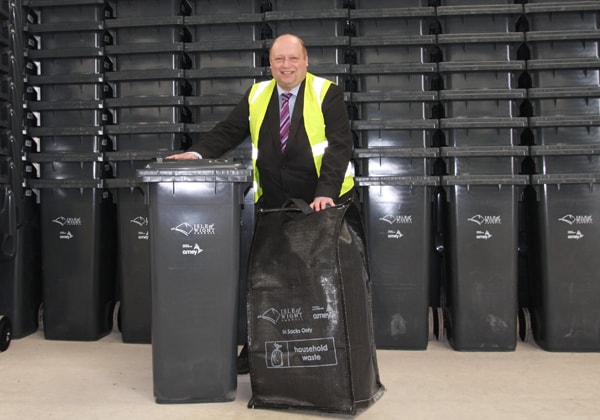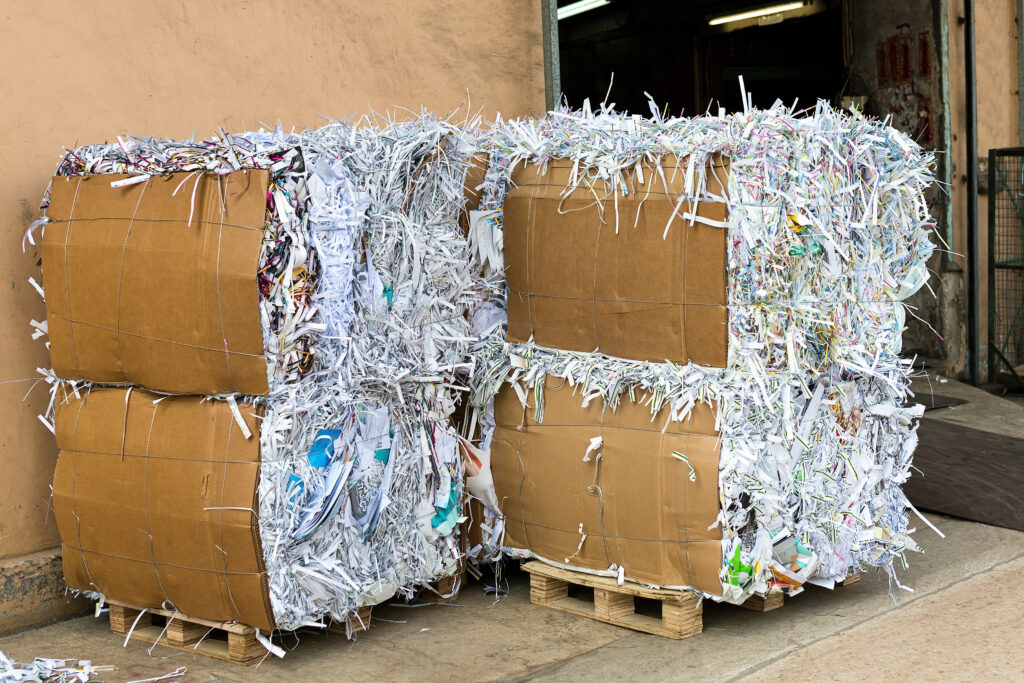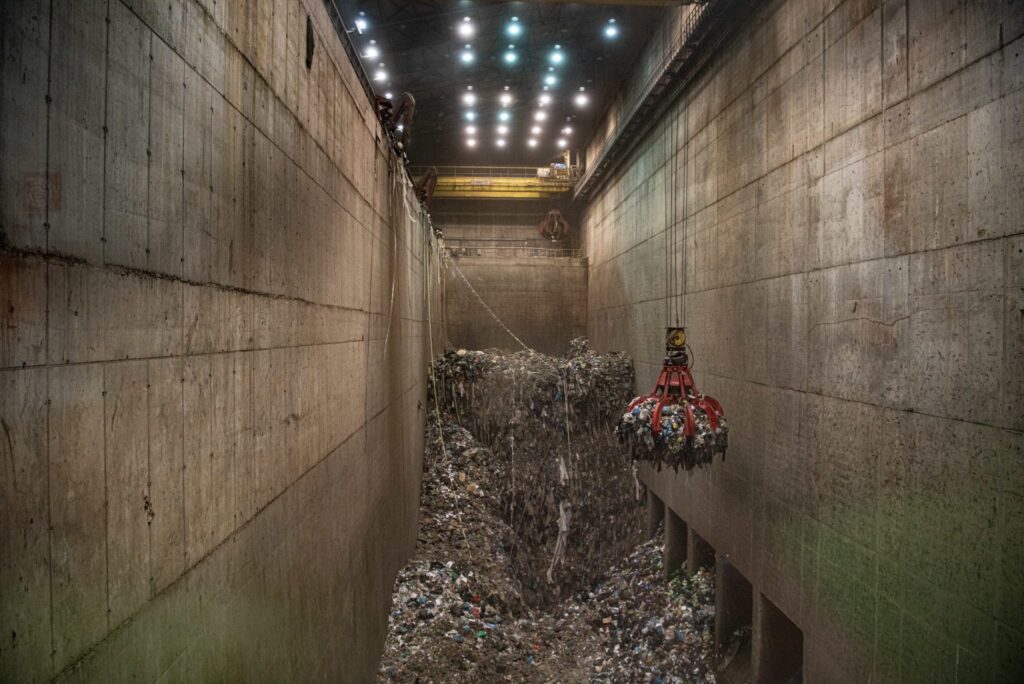The contractor is rolling out 240 litre wheeled bins, and 55 litre recycling bin ‘inserts’ for suitable properties or ‘seagull-proof’ sacks across households which will be used for the collection of residual waste and recycling.

Re-usable woven plastic seagull-proof bags will be used for properties where wheeled bins have been deemed not to be appropriate. Residents are currently receiving the sacks, which will include a 240 litre green sack to be used for recycling plastics and cans, a 55 litre blue sack for newspaper and card, and a 140 litre black bag for the collection of residual waste.
Other properties have taken delivery of 140-litre black wheeled bins, which will replace existing sacks for residual waste and properties will continue using their green wheeled bin for recyclable materials, as well as a black insert box for paper and card (see letsrecycle.com story).
Amey contract
The new system came into effect yesterday (2 May) as part of the council’s 25-year waste collection and treatment contract with services provider Amey, which took over collections in November. Previously, the contract had been held by Biffa subsidiary Island Waste Services (see letsrecycle.com story).
Under the changes, all properties will receive a new bin or sack, dependent on suitability and space.
Paul Southall, account director for Amey, said: “The new arrangements will make it easier for people at home to separate waste and recycling, which in turn helps us increase recycling rates.”
According to Mr Southall, it is hoped that the introduction of the wheeled bins and gull-proof sacks will help cleanliness and cut down the spread of waste ‘significantly’ across the island.
Alternate weekly collections of householders refuse and recycling and weekly food waste collection will remain the same under the new changes.
‘Significant’
Isle of Wight council member for environmental sustainability, councillor Paul Fuller, said: “These changes, in partnership with Amey, will play a significant role in improving recycling on the Island and reducing the amount we send to landfill – as well as improving our local environment through the better containment of household waste.”
The Isle of Wight had a household recycling rate of 49.2% for 2014/2015.









Subscribe for free